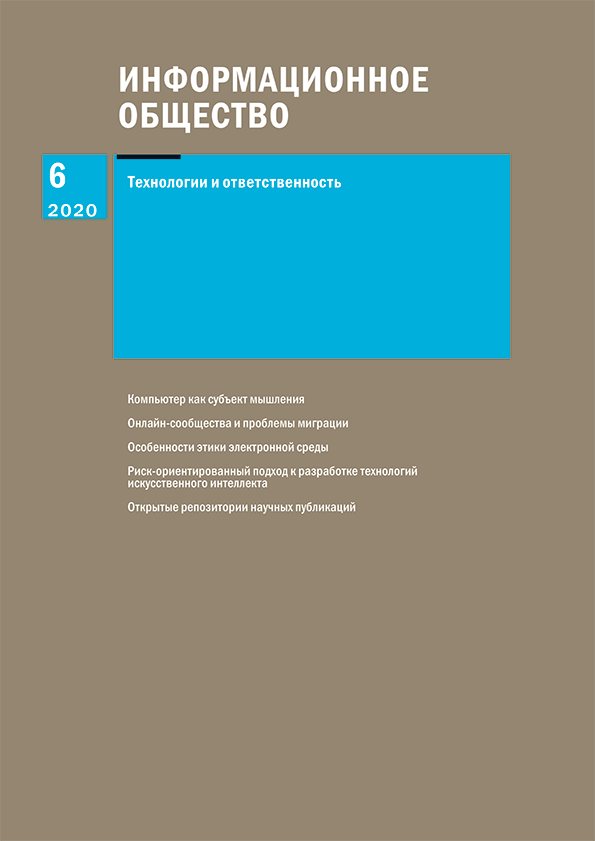Information ethics in the development of electronic culture
Keywords:
e-culture, ethics, security, liberalism, utilitarianismAbstract
With the development of electronic culture and its forms, the emergence of new channels of communication and the digitalization of social institutions, ethical issues are becoming more and more relevant. The article examines the factors and contexts that have the greatest influence on the formation and features of the ethics of the electronic environment. A brief historical overview of the formation of the problem of information ethics is presented, and its characteristics are given. Systematization of the main approaches to the interpretation of electronic culture and its nature is given, the advantages of the existential-axiological approach are shown, as well as its possibilities in the study of digital communication problems. The features of information ethics formation in the conditions of electronic culture associated with a high level of liberalism, utilitarianism, and Antinomianism in solving the problem of freedom and security in the digital environment are revealed. Some ethical problems of virtual communication in the "human-human" and "human-AI" systems are revealed, and the main risks in this sphere are systematized.
Published
How to Cite
Issue
Section
Copyright (c) 2020 Людмила Владимировна Баева

This work is licensed under a Creative Commons Attribution-NonCommercial-ShareAlike 4.0 International License.
